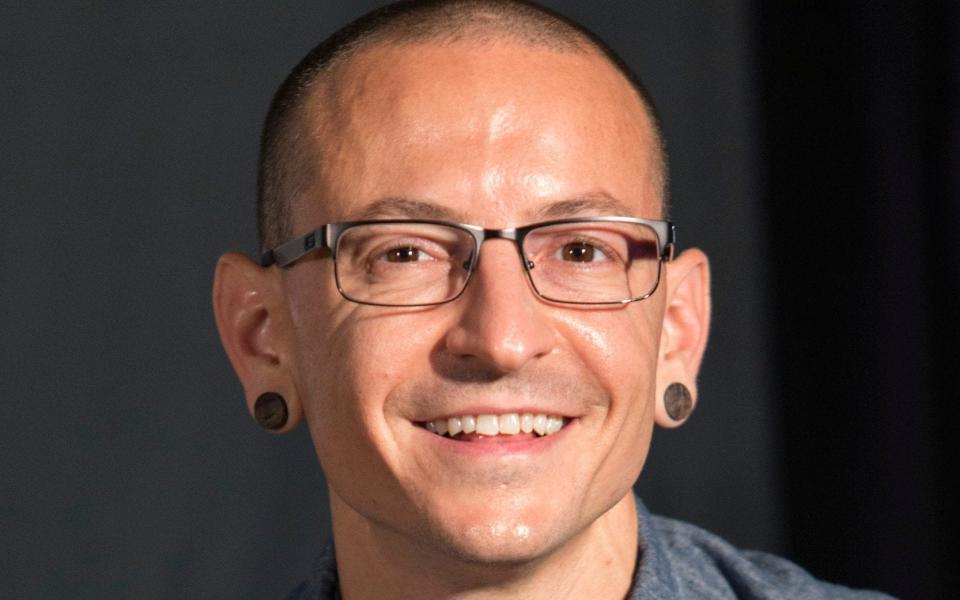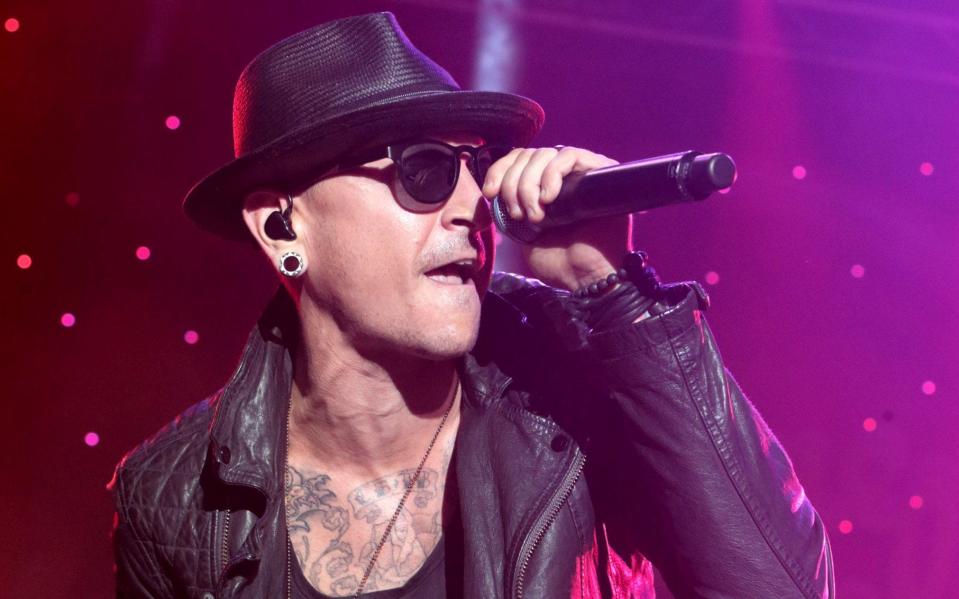Why the passing of Linkin Park's Chester Bennington will break millions of millennial hearts

For millions of millennials around the world, news of the apparent suicide of Chester Bennington, the 41-year-old singer of Linkin Park, will come not only as a shock, but carry a very specific resonance.
From 2000 – the year in which Linkin Park became a sensation with their diamond-certified album Hybrid Theory – Bennington's lyrics and example have been helping young people cope with their own battles, sense of alienation, and struggles with mental health.
Born in Arizona in 1976, Bennington had a troubled childhood and teenage life. He was sexually abused for years by a friend, bullied, and struggled with drug addiction and suicidal thoughts.
He survived all this, and channelled his experiences into becoming the frontman of one of the biggest rock bands of his generation by the age of 24.
In Bennington’s lyrics to hits such as “One Step Closer”, “Crawling” and “Numb”– which explored his personal insecurities and the obstacles he has overcome throughout a difficult life – misunderstood teenagers found an expression of their fears and troubles.
Then, in one of those beautiful ironies that is almost solely the preserve of music, these listeners found acceptance to a world-wide community more populous than that which excluded them.

Chester Bennington looked unusual and awkward. Even in an era where every rock star, with tinted sunglasses and spikey hair or masks and spiked collars, looked like an alien or insect. Wiry and fey, and later weathered, Chester Bennington was never “cool”, as such. Not even at the time.
But there was something admirable about this, and it enabled him to consistently appeal to the marginalised. It was as if he needed to stay not one step ahead, as other artists might, but one step outside of his peer group.

Linkin Park were part of the millennium's “nu metal” explosion, which also included the likes of Korn, Papa Roach, Limp Bizkit, Slipknot and Mudvayne.
Eschewing what they saw to be self-aggrandising, exhibitionist aspects of metal such as guitar solos, nu metal bands down-tuned their guitars, employed funk beats, and incorporated aspects of hip hop and electronic music, such as rapping and sampling. Some bands had their own DJs, such as Linkin Park’s Jo Hahn.

Now much maligned and disowned, the genre undoubtedly opened a genre geared towards white males to a much wider audience, and spotlighted ethnically diverse bands.
Among them, Linkin Park was one of the most influential, with its brace of frontmen. While Mike Shinoda rapped, Bennington would supply rock melodies and screams in a tortured, yet completely defiant and cathartic, tenor.
The rise of nu metal would also unfortunately coincide with the rise of school shootings in America. As Marilyn Manson’s lyrics were blamed by the media, or at least cited as an influencing factor, for the 1999 Columbine massacre, Linkin Park were associated with a 2001 shooting in Santee, California, by a 15-year-old fan.
But for many, listening to the band and identifying with Bennington’s lyrics provided a source of solace and a non-violent outlet. For a generation of teenagers, some struggling with mental health issues, Linkin Park’s very existence – never mind massive popularity – reassured them that they belonged. As can be seen by the thousands of tweets about Bennington’s influence.
Back in the day as a kid, I was bullied in school. It was tough on me and I would listen to Linkin Park to help me out. RIP Chester ��
— Sean Tran (@TranSean) July 20, 2017
I’m kinda hurt by this one. RIP Chester Bennington, thank you for the inspiration and music through my childhood and Adult life. #linkinparkpic.twitter.com/zVvgLxPSEs
— A Chocolate Man (@xJAYEL) July 20, 2017
He will be always there to help me..saving my life..this incredible man ❤ pic.twitter.com/aJ00lmRr4A
— Jezz Bennington (@sayoXsarana) July 20, 2017
From a generation of bands for whom a “parental advisory” sticker on a CD was almost mandatory, Linkin Park rarely swore. They tried to be positive influences in the lives of young listeners.
They have supported tens of charities including Make-A-Wish and the United Nations Foundation, set up the fund Music for Relief, and played a range of concerts to raise money for victims of disasters such as Hurricane Katrina and the 2004 tsunami.
Bennington’s death will have an impact on many millennials because his voice was the sound of their millennium. It symbolised the days of going over to your friend’s house to watch MTV or Kerrang! if they had Sky or Cable. Of baggy jeans and bike chains. And with his passing, those days, in a way, are finally long gone.
Hybrid Theory was one of the first albums that I bought after arriving at secondary school. Linkin Park were a gateway band in more ways than one: they opened you up to heavier music, or otherwise gave you somewhere to escape to for however long you needed.

I grew out of Linkin Park quite quickly, as did most of my friends. Yet minutes after news of Bennington’s death broke, I received more and wider-ranging texts from my peer group than have followed the recent deaths of musical giants we all still listen to.
Why is this, if they were so indicative of a musical phase? Maybe it is because they were there for you when you needed them, and expected nothing back. And it is very upsetting that Bennington will no longer be unconditionally there for all the future generations of teenagers to come, who need to be reassured that they belong.


 Yahoo News
Yahoo News 
